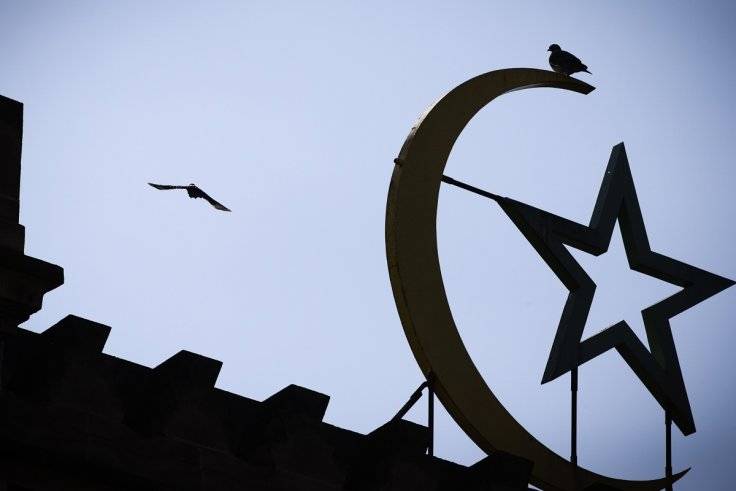Islam pervades all spheres of life for a Muslim. From bathing rituals to thought policing to how one should treat or tolerate a non-Muslim often called an infidel or kafir in the holy text. There are reformers trying to sift between the peaceful Quranic verses and the violent ones, the authentic sayings (Hadith) and the inauthentic ones, the regressive Sharia laws with the progressive ones, or so it seems and a whole lot of schools of jurisprudence and theology which sprung up later - Asharite, Hananbali, Shafi, Deobandi, Sufi, Barelvi, Wahhabi, Salafi and so on.
In a world that is trying to cope with a death cult that has no issues blowing themselves up in school buses, or public parks, the reformists themselves seem to oscillate between apologist to moderate, to an outright militant rejection of the whole idea of Islamism. I am for all kinds of approaches. Having been reared up in a culture in which speaking out or speaking about taboo things was forbidden and bold men, women and children shamed into silence, I am for criticism of all kinds. The question is how much of this is effective? Do we still adopt an apologist (read denial) strategy to fight suicide bombers, who are aided by takfiri-regressive Left types or do we give a clarion call for a militant approach that Ayaan Hirsi Ali and Sam Harris propose? What would be the most effective strategy or plan of action?
To understand this and find a solution we need to first of all marshal all our empathetic reserves from our beings and think of the victims of violence. A bomb blast doesn't just kill or maim the victims in the immediate vicinity. It scars and traumatises those who survive it and witness the mayhem too. It also leaves a legacy of confusion, crisis, distress and a sense of rootlessness when repeatedly thrust in the faces of those miles away whether by media or by the collective memory of a community of historical wounds.
I remember the first bomb blast closer to home in Srinagar city in 1989 in a bus stand near my school. One of the first symbolic acts of the non-state actors or 'mujahids' in announcing a guerilla war against the Indian state in what was to become the 'tehreek' for Azadi. I never found out the name of the lone civilian casualty and the wounded in that blast, yet I never forgot the sound blast and the intense connection my being made with the fact that a life had been snuffed out either.
Growing up in a conflict zone where you have a state-sponsored terrorism versus a 'proxy war' by a neighbouring country being fought by ideology-driven guerilla fighters in civilian areas – one is expected to grow immune to blood, gore, body parts, bashed skulls with brain tissue oozing out, entrails visible from deep gashes and bodies with heads or torsos missing.
We have seen it all and it never fails to hurt. No matter how far one is from the radius of the blast, the trauma returns as the frequency and regularity of the violence becomes apparent. PTSD is a rising concern of Kashmir Valley, its endemic proportions yet to be studied, documented and shared comprehensively on a large scale. Yet, every time there is a bomb blast, a knife stabbing, or a plane hijacking we feel the trauma of it literally on our skins as if we had been personally seared by the heat blast.
It has taken over two decades to realise the 'proxy war' (or as I like to call it Pakistan's 'Shadow War' after Arif Jamal's exhaustively researched book), that we were dragged into; the Caliphate/Azadi we were promised, the theocracy imposed on us by cleansing the Valley of liberals, seculars, progressives along with the Pandits through fear, coercion, intimidation, terror, selective target killings and plain obfuscation or subversion of history. Just like Pakistan is doing now – trying to 'cleanse' the land of the pure (Pak sarzameen) of diverse cultures and ethnic minorities. It's a country at civil war – an undeclared one. Secular, liberal, democratic pockets of rationality against a horde of medieval, megalomaniacs brought up on the ideologies of madrasas funded by the Wahabbi/Salafi House of Saud.
So coming back to the original question. Should a secular, progressive approach towards reform be the way or should it get militant as well with the outright rejection of medieval sayings, medieval law and medieval jurisprudence and an aggressive denunciation of the most homophobic, misogynistic, war-mongering, violence inciting verses of the text itself?
That would be the bloody million dollar question today?
I see fissures starting to appear in the reformers too – about what is the best way to approach a highly-sensitive, highly-volatile, faith-based group in history which does not take criticism of its regressive culture and practices lightly. Some are of the opinion that a moderate stance is the best because it allows freedom of speech, the right to religion and upholds the rights and freedoms of those who demand the death of anyone opposing their belief. Some feel that it is rational to outrightly declare war on a group or its ideology because people are being killed for drawing cartoons and the perpetrators often resort to a justification of heinous acts by reverse-victim mentality.
In the end it’s all a question of defending one's body, one's family and one's community – the motive for survival since the Ice Ages and the main reason of tribal structures of societies. Hence, the death cult keeps springing up the bogey of persecution or Islamophobia. In the end, we decide. Whether to protect our children from this or to be politically correct as always.






